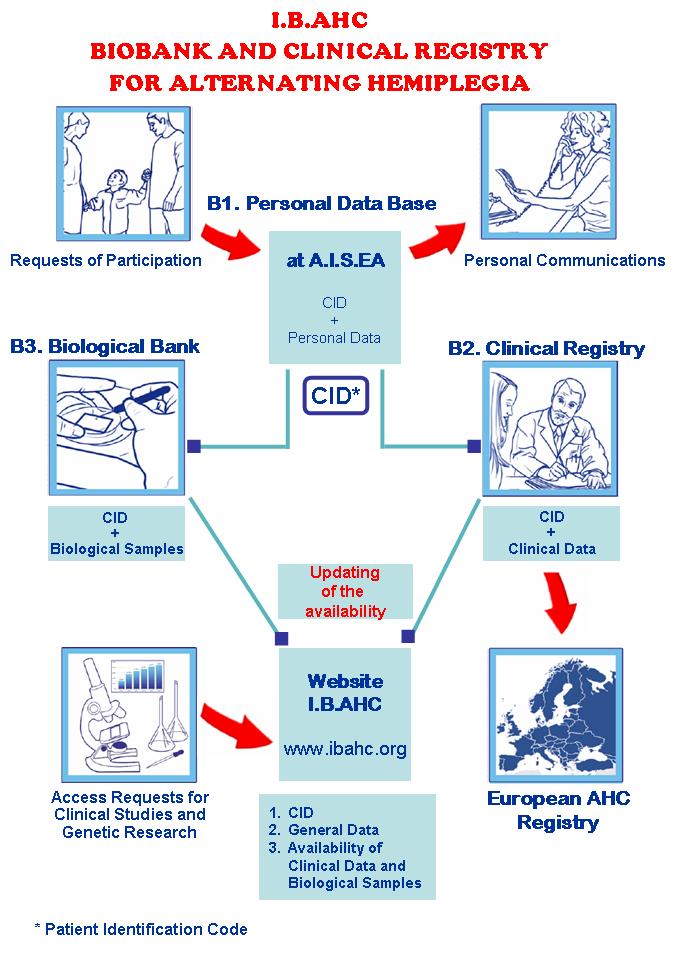THE ARCHITECTURE OF I.B.AHC
The service provided by I.B.AHC - Italian Biobank and Clinical Registry for Alternating Hemiplegia,
is structured in three physical sections:
- B.1 Personal Data Base
Managed by A.I.S.EA Onlus. It contains the personal data of the patients and the link between such data and the related
CID, the anonymous, numeric code used to reference the information kept in the following two sections.
Tha Personal Data Base is off-line and accessible only by the manager appointed
by A.I.S.EA Onlus (currently Dr Filippo Franchini)
- B.2 Clinical Registry
Managed by one or more Data Managers appointed by A.I.S.EA Onlus
(currently Dr Elisa De Grandis and Dr Melania Giannotta).
It contains the clinical data, the video recordings and the photographs of the participating patients, to be used for clinical and therapeutic studies.
All these data are identified only by the CIDs.
- B.3 Biological Bank
Managed by the Responsible at the Scientific Institute hosting it, by means of
an agreement with A.I.S.EA Onlus (currently Dr. Maria Teresa Bassi, Laboratory of Molecular Biology, Scientific Institute E. Medea (LC)).
It contains the biological samples of the participating patients (DNA, RNA and cellular lines) and of their parents (DNA
only), to be used for genetic research. The samples are identified only by the CIDs.
A subset of the Data in the I.B.AHC Clinical
Registry is also copied in the European Registry for AHC, under the management of
ENRAH, the European Network for Research on AHC.
|
